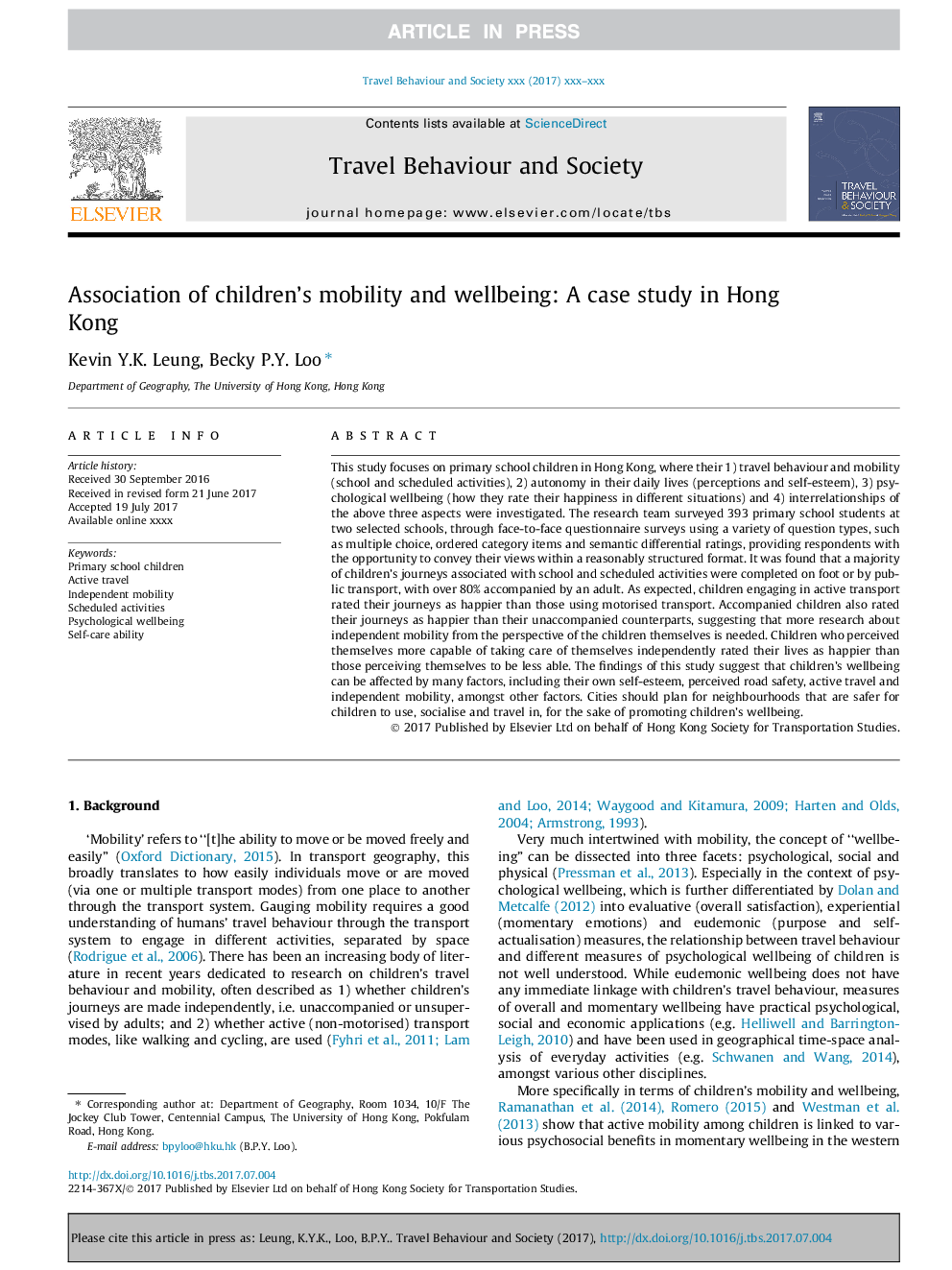| Article ID | Journal | Published Year | Pages | File Type |
|---|---|---|---|---|
| 4762091 | Travel Behaviour and Society | 2017 | 10 Pages |
Abstract
This study focuses on primary school children in Hong Kong, where their 1) travel behaviour and mobility (school and scheduled activities), 2) autonomy in their daily lives (perceptions and self-esteem), 3) psychological wellbeing (how they rate their happiness in different situations) and 4) interrelationships of the above three aspects were investigated. The research team surveyed 393 primary school students at two selected schools, through face-to-face questionnaire surveys using a variety of question types, such as multiple choice, ordered category items and semantic differential ratings, providing respondents with the opportunity to convey their views within a reasonably structured format. It was found that a majority of children's journeys associated with school and scheduled activities were completed on foot or by public transport, with over 80% accompanied by an adult. As expected, children engaging in active transport rated their journeys as happier than those using motorised transport. Accompanied children also rated their journeys as happier than their unaccompanied counterparts, suggesting that more research about independent mobility from the perspective of the children themselves is needed. Children who perceived themselves more capable of taking care of themselves independently rated their lives as happier than those perceiving themselves to be less able. The findings of this study suggest that children's wellbeing can be affected by many factors, including their own self-esteem, perceived road safety, active travel and independent mobility, amongst other factors. Cities should plan for neighbourhoods that are safer for children to use, socialise and travel in, for the sake of promoting children's wellbeing.
Related Topics
Life Sciences
Environmental Science
Management, Monitoring, Policy and Law
Authors
Kevin Y.K. Leung, Becky P.Y. Loo,
